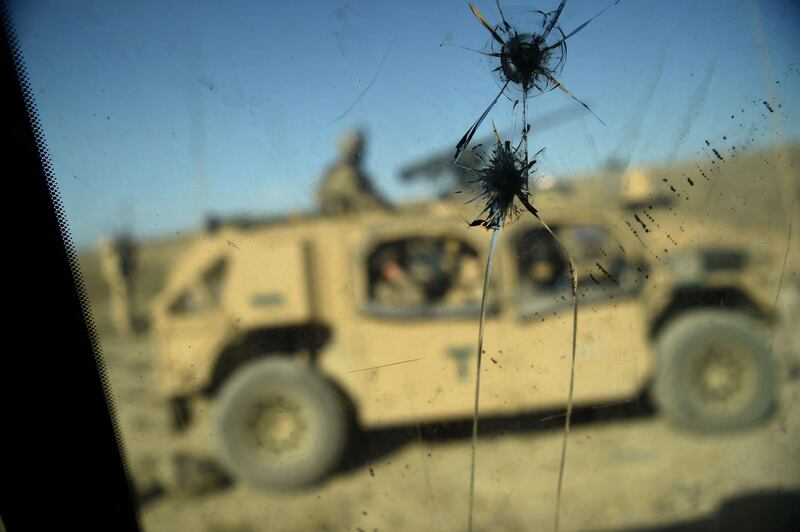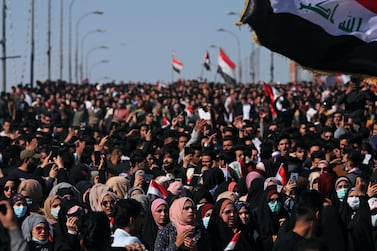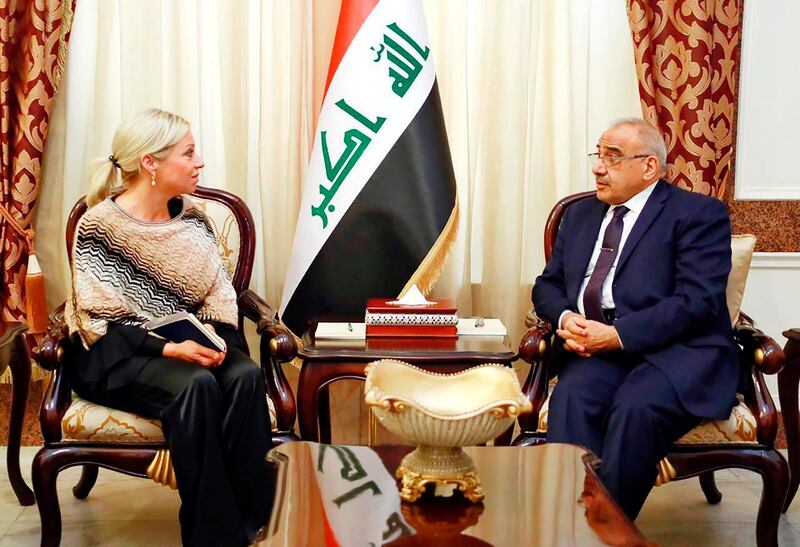The US says it remains committed to supporting Iraq against an ISIS resurgence, despite escalating tensions with Iran.
The Iraqi government declared victory over the terror group in December 2017 and the US-led coalition seized the group’s last territory in Syria last March.
But ISIS continues to carry out attacks in both countries.
A State Department official told The National that the Global Coalition to Defeat ISIS "remains committed, along with Iraqi security forces, to our shared goal of defeating ISIS remnants".
The official said the coalition continued to have advisers in the operations centres of several provinces and has regular meetings with Iraqi security forces at all levels.
While ISIS remains a concern in Iraq, the coalition has not seen a rise in activity over the past month, he said.
“The US has made clear the importance of the continued presence of the Global Coalition to Defeat ISIS in Iraq,” the official said.
“We have fought side by side with Iraq against ISIS to liberate 100 per cent of ISIS’s territorial control, enable critical stabilisation initiatives and facilitate the return of millions of Iraqis to their homes.”
In 2014, ISIS held territory that was nearly the size of the UK.
The reaffirmation of support comes weeks after the US launched a drone strike near Baghdad airport that killed Iranian major general Qassem Suleimani.
After the strike, Iraq’s Parliament passed a non-binding resolution calling on the government to expel foreign troops. Kurdish and Sunni politicians boycotted the vote.
The US has about 5,200 troops stationed in various bases around the country to help security forces fight ISIS. Their primary concern is to train Iraqi forces.
The official said that US Secretary of State Mike Pompeo “agrees there needs to be a conversation between the US and Iraq, not just regarding security but also our financial, economic and diplomatic partnership".
Brett McGurk, the former special presidential envoy for the anti-ISIS coalition, said this month that the withdrawal of US troops could leave the country vulnerable to an ISIS resurgence.
“If we leave Iraq, that will just increase further the running room for Iran and Shiite militia groups, and also the vacuum that we’ll see groups like ISIS fill, and we’ll be right back to where we were,” Mr McGurk told MSNBC. “That would be a disaster."
The German military on Sunday said it had resumed its operations in northern Iraq after they were suspended following the killing of Suleimani. The Bundeswehr has about 90 soldiers in the northern city of Erbil.
The Global Coalition against ISIS was formed in September 2014 and has 81 members that work to dismantle the group's networks, economic infrastructure and propaganda.











